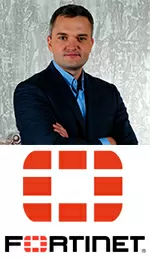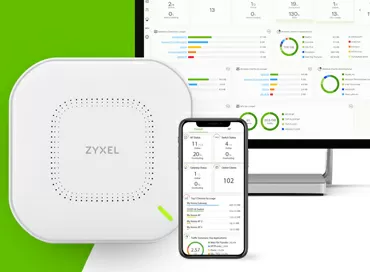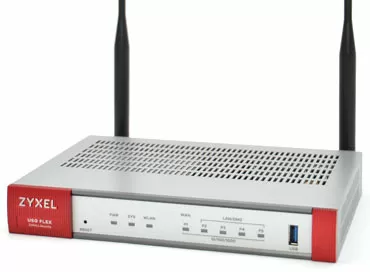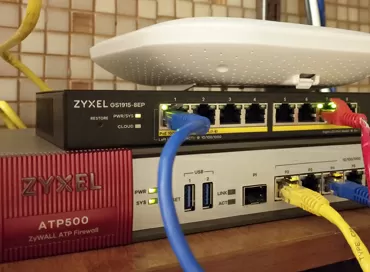Non-obvious problems of lack of cloud security specialists
The need for talented it professionals remains a major issue for most organizations. According to a recent report, many organizations claim that they are currently experiencing staff shortages in a number of it specialties, including server / system administration (43%), General network administration (36%), and database administration (31%). The shortage of experienced cybersecurity professionals is even more pronounced – the gap in supply and demand for such specialists is just under 3 million employees. As a result, according to the ESG report, 53% of respondents believe that the lack of personnel in the field of cybersecurity is a problem for their organization. And this applies only to General cybersecurity specialists who are primarily involved in supporting and protecting traditional network environments.
But as networks expand rapidly today and now include the cloud, this problem becomes even more acute. Almost a third of organizations reported difficulties finding employees who can manage converged infrastructures that combine traditional and cloud networks into a coherent network environment. The lack of qualified employees in the field of cloud networks and their development is very similar to the situation in the it sector, where 41% of organizations have difficulty finding qualified dev-ops engineers and 37% are looking for employees with experience in container administration.
So it's no surprise that finding a security specialist with cloud technology skills is like finding a needle in a haystack. As a result, cloud security approaches are increasingly similar to physical network security approaches, meaning solutions are implemented separately. To make matters worse, security policies, devices, configurations, and protocols deployed in the cloud are often managed by a completely different team of specialists, which means that there is not the highest level of consistency in terms of policy application, mutual compliance, management, or orchestration.

|
About the author:
Alexey Andriyashin, technical Director of Fortinet in Russia
According to Wikipedia: Fortinet is an American multinational Corporation specializing in the development and promotion of software, solutions and services in the field of information security: firewalls, antivirus programs, intrusion prevention systems and endpoint security, and other products. In terms of revenue, the company ranks fourth among all companies specializing in network security. |
Of course, cybercriminals are always fully prepared and very enthusiastic to exploit these security gaps at the junctions of networks – networks that must still exchange data and ensure that workflows are executed.
The main "scarce" areas in the field of cloud cybersecurity
The main challenges faced by organizations using cloud networks and services are listed below.
1. Native cloud security-organizations that implement cloud networks usually face the same security issues that exist in their traditional networks. First, they tend to put security issues on the back burner and usually start dealing with these issues after the cloud infrastructure plans have been formed. Second, they tend to implement the same legacy solutions in the cloud that they used in the shared core network. Many vendors simply upload virtual versions of their physical security devices to cloud storage, and organizations choose them because they believe they are already familiar with them.

- First, these different security tools continue to be used in isolation from each other, and it means that you not only continue to use information about threats or security events simultaneously in different solutions, but cannot use this information at the same time in different network environments, which only complicates the mutual coherence and the implementation of policies;
- Second, virtual versions of security solutions implemented in the cloud often work very differently from their physical versions. It's not just that inpidual functions work differently in them – many functions in such solutions may not be present at all. This means that even if you can see all versions of your firewall in a centralized management console, this does not guarantee that you will be able to set up uniform configurations and ensure consistent execution of policies;
- Finally, these tools do not allow you to fully realize the benefits and built - in functionality of the cloud, because they are not designed to work with cloud APIs and native cloud functionality, which in turn means that they are slower and not as efficient as the tools originally created for working in the cloud.
It is important for cloud security experts to be able to deploy, configure, and manage native cloud solutions that are designed to run in the same flexible and distributed mode as cloud applications and that are required in modern cloud computing platforms, which is very different from traditional security tools.
2. DevOps or DevSecOps - security specialists should become an integral part of your DevOps engineering team – this will ensure that security is built into applications, infrastructure, and services from the very beginning of each project. For example, for agile application development, you need to be able to link application functionality-especially for processing critical data – with security features within a single reliable chain to ensure that users are protected, while maintaining high application efficiency and performance. Generally speaking, this requires many skills that are not limited to the skills of most cybersecurity professionals, focused primarily on basic network security strategies.
3. container security - This aspect becomes more and more complex when implementing specialized environments, such as containers, where it is necessary to use well-defined security solutions. To ensure container security, you need a security specialist who is able to solve certain tasks, including:
Integrated container security to solve the problem of using corrupted or malicious data and placing it in containers.
Container-enabled security tools, such as firewalls for web applications running inside containers, allow DevOps engineers to integrate application security more effectively into their application development processes.
Security approaches that take into account working with containers, which provide for the formation of policies and control over their implementation based on contextual factors, such as container tags and tags.
Securing the container registry so that developers can't select an infected module and then create new application functionality based on this compromised code.
4. Multi-cloud environments - all these problems are compounded when it comes to multi-cloud environments. And given the fact that according to some experts, 81% of modern enterprises currently implement multi-cloud strategies, this aspect is the most important.
Challenges in a multi-cloud environment include:
Provide uniform, unified security — applications, data, and workflows move between cloud environments. From a security point of view, this means that security policies must also migrate after any transactions, so that critical data and resources receive proper protection regardless of their location.
Ensuring uniform policies — another challenge is that different cloud environments work differently, which means potential problems with migrating security policies between different cloud networks. It is necessary to take into account the difference in the functionality of security solutions, and protocols must be able to translate rules and policies on the fly to eliminate any gaps in their implementation that could be exploited by attackers.
Final thoughts
The lack of qualified cybersecurity professionals, especially those with skills in working with cloud environments, can lead to a dangerous crisis that threatens the very existence of our young digital economy. To solve this problem, coordination of efforts on the part of both the private and public sectors is necessary. In the meantime, organizations need to identify those it employees, preferably with a DevOps background, who can be specifically trained in the field of cloud security.
These employees should then be included in both it security and DevOps engineering teams to not only implement effective security solutions, but also bridge the gap between traditional it and the cloud. Failure to fully understand the issues and effectively implement a native cloud security strategy can make your organization vulnerable to policy gaps and implementation mechanisms, as well as limit the performance and security of your cloud infrastructure, applications, and services. And this can be a crucial factor in whether your organization can succeed in today's digital economy.
Alexey Andriyashin
01/08.2019













